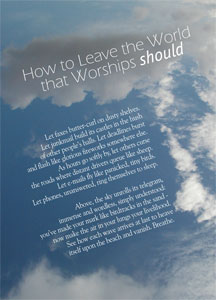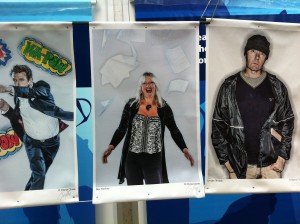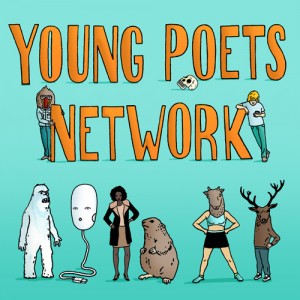On Saturday 27th April I’ll be reading from The Marlowe Papers at the Cheltenham Poetry Festival, with support from the poets of Buzzwords. Should be fun.
Tickets and booking here: http://www.cheltenhampoetryfest.co.uk/eventdetail.php?ID=36
Writer
On Saturday 27th April I’ll be reading from The Marlowe Papers at the Cheltenham Poetry Festival, with support from the poets of Buzzwords. Should be fun.
Tickets and booking here: http://www.cheltenhampoetryfest.co.uk/eventdetail.php?ID=36
On the afternoon of Friday 26th April I’ll be appearing at the Stratford-upon-Avon Literary Festival alongside Professor Stanley Wells and Dr Paul Edmondson of the Shakespeare Birthplace Trust to discuss the works and lives of Shakespeare and Marlowe. Those of you thinking this might turn into a bun flight will be happy to know tea and cake are included in the ticket price.
Details and ticket booking here: http://www.stratfordliteraryfestival.co.uk/event/shakespeare-and-marlowe
Nice chunk one-hour slot for reading and talk about The Marlowe Papers (with Q & A) at Oxford Literary Festival on Tuesday 19th March.
My first public appearance since the book was long-listed for the Women’s Prize for Fiction. Do come!
Full details and ticket booking here.
 I want to say a little something about the poem ‘How to Leave the World that Worships Should‘ because so many people have been coming here looking for it since it appeared on the English Literature GCSE syllabus last year. I’ll leave the analysis to others because my days of doing other people’s homework are over. Unless you’re going to threaten to flush my head down the toilet, obviously. I will, however, give you a small hint about the title, which I know flummoxes some people. The word ‘should’ should be in italics, or inverted commas. How to leave the world that worships (the word/concept of) ‘should’. Simple enough, once that’s clear, although I know when the poem reproduces itself on websites the italics or quote marks can disappear, making the title utterly nonsensical.
I want to say a little something about the poem ‘How to Leave the World that Worships Should‘ because so many people have been coming here looking for it since it appeared on the English Literature GCSE syllabus last year. I’ll leave the analysis to others because my days of doing other people’s homework are over. Unless you’re going to threaten to flush my head down the toilet, obviously. I will, however, give you a small hint about the title, which I know flummoxes some people. The word ‘should’ should be in italics, or inverted commas. How to leave the world that worships (the word/concept of) ‘should’. Simple enough, once that’s clear, although I know when the poem reproduces itself on websites the italics or quote marks can disappear, making the title utterly nonsensical.
No, no analysis, because I would hope – outside the demands of exams etc – that it doesn’t need one. But I will give a little background.
First off, I should tell you this poem owes its existence to the generous funding of Arts Council England and two lovely people who worked at Canterbury City council nearly a decade ago. So if you like this poem, support the funding of the arts! The two lovely people had seen me speak about my public art commissions at a conference and approached me to write a number of poems about Herne Bay, on the coast of Kent. We ended up agreeing on eight sonnets (which became known as the Seaside Sonnets), and this was the first. The day I wrote it, I knew it was something a little bit special. Since then it has proved to be so: popular in postcard form with people working in cubicles, it has proliferated itself all over the internet. Someone even posted it on the Bolton Wanderers fan forum, at which point I realised it was really going mainstream. Read more
Working Men’s College Library
44 Crowndale Road London NW1 1TR
Nearest tubes Camden, Mornington Crescent
Wednesday 6 February 2013 @ 7.00pm
FREE
To reserve a seat please email: lucyjpop@gmail.com
Ros Barber (www.rosbarber.com) is the author of highly acclaimed verse novel The Marlowe Papers (Sceptre, 2012), a joint winner of the Hoffman prize and chosen by Benjamin Zephaniah for The Observer Books of the Year 2012. Her three collections of poetry include Material (Anvil, 2008), a Poetry Book Society Recommendation. An engaging performer, her work has been featured on Radio 4’s Saturday Review and Poetry Please, Radio 3’s The Verb, and Meridian TV’s arts programme The Frame. APOLOGIES: Ros will no longer be appearing due to a fractured coccyx.
Chris Chalmers went freelance from his job as an advertising copywriter ten years ago to write novels. Five To One, was the 2011 winner of the debut novel competition run by digital independent, Wink Publishing, and is available on Amazon as an ebook. It has been described as “A poignant study of genuine love in our big and fantastically diverse city.” He was recently signed to Raimondi & Campbell.
Sheila Hayman is a writer & film maker. Awarded the BAFTA/Fulbright Fellowship in 1990, she was sent to Los Angeles where she conceived and designed a pioneering website for Sony, was official necrologist of the Oscars, designed musical computer interfaces with Peter Gabriel, and made more documentaries. Her novel, Mrs Normal Saves the World, was published in 2008 www.mrsnormal.com. Sheila runs ‘Write to Life’, the therapeutic creative writing programme of Freedom from Torture. In 2010 her film, Mendelssohn, the Nazis and Me, was nominated for the Grierson Documentary Award for Arts. She is currently producing and directing iPad apps & other digital media.
John McCullough’s first collection of poems The Frost Fairs (Salt) won the Polari First Book Prize for 2012. It was also a summer read in The Observer and was named an overall Book of the Year by both The Independent and The Poetry School. He shifts between characters in nineteenth century London and the present. He teaches creative writing on the MA programme at the University of Sussex.
Roma Tearne is a Sri Lankan born novelist and film maker. She left Sri Lanka with her family, at the start of the civil unrest during the 1960s. She trained as a painter & filmmaker at the Ruskin School of Fine Art, Oxford and then was Leverhulme artist in residence at the Ashmolean Museum, Oxford. Her third novel, Brixton Beach, was published to great acclaim in 2009. Her most recent novel, The Road To Urbino was published by Little Brown in June 2012. She has been short-listed for the Costa, the Kirimaya and LA Times book prize and long-listed for the Orange Prize in 2011. She lives and works in Oxford.

On this final day of 2012 I want to acknowledge what an incredible year it has been for me. The publication of The Marlowe Papers in May was the realisation of a childhood dream and in the hardback Sceptre produced something incredibly beautiful that I would adore even if it didn’t have my name on the spine. Launch day couldn’t have been more perfect. Will Self was incredibly generous to give his time and brilliance (especially given the front of his house had just collapsed!) to create a launch event worthy of one of my favourite places on earth, The British Library – and co-create an entertaining and thought-provoking evening. And then the reviews in the press and on the radio: copious and enthusiastic. This was the year that Twitter finally came into its own for me; I loved the fact that readers swept away by the book could so easily let me know and more than one day started with the news that someone, somewhere, was blown away by the words I’d been quietly honing for half a decade.
The highlight for me was probably the Edinburgh International Book Festival: a wonderful experience. I’ve been invited to many literature festivals over the years in my capacity as a poet, but the EIBF beats all others so far in terms of hospitality to its authors. Authors often spend years (indeed, decades) feeling like outsiders; we are observers rather than get-stuck-inners, therefore not great joiners, even though we long (as all humans do) to feel like we belong. Edinburgh managed to generate a feeling of belonging and being appreciated that I have rarely found elsewhere. It spurred me on properly begin (after over a year’s composting) the next novel, motivated by the knowledge that I must write another book to have a chance of being invited again.
Other highlights? It will be hard to forget sitting in a Norfolk farmhouse on May Bank Holiday weekend, surrounded by my extended family, hiding under my hair and barely daring to breathe as I waited for the first pre-publication feedback – the verdict of the critics on Saturday Review. Or the moment where Will Self wittily demolished my father-in-law’s heckle on historical bibles. Or asking an editor at the Bookseller what he thought of reading the book a second time and his answering ‘I haven’t stopped reading it’. Then there was the moment on the train up to Yorkshire where the opening of the next novel arrived unbidden, followed by the wonderful New Novelist’s night in the recently flooded Hebden Bridge.
It has been an amazing year. 2013 sees the book published in the USA, my travelling to Staunton Virginia to deliver a paper at the 7th International Marlowe Society of America conference, running a writing retreat in the Dordogne, and many other exciting things. It feels like life is just beginning.

Looking for a writing retreat somewhere beautiful and relaxing with a professional writer to guide you? You and your writing are at the centre of this writing retreat in the heart of the Dordogne.
Prize-winning poet and novelist Ros Barber will inspire you and help you hone your writing in a structured-yet-relaxing week of creative focus. Whether you are writing poetry or prose, bringing a manuscript in progress or beginning a new writing project, Ros will individually guide each participant to help them get the most out of their week and their writing. Ros can also give advice on getting your work published.
After a delicious breakfast, the mornings will be about knuckling down to writing, with a mix of structured workshops where you can generate new ideas and explore new approaches. Alternatively, you choose to work alone on your own writing in your room or anywhere else in the locality. Just before lunch, Ros will facilitate a feedback session, where you will give and receive feedback on any writing you’d like to share with other participants.
The afternoons are your own: for writing in the house or the extensive grounds, gaining inspiration from the surrounding countryside and villages, or just lazing by the pool allowing the ideas to flow to you. You’ll be offered a one-to-one mentoring session during the week, so bring some work-in-progress to discuss with Ros. There will also be plenty of opportunities for ad hoc sharing and guidance.
After the evening meal, we’ll gather together for a relaxed combination of reading and discussion over a glass or two of wine.

Le Manoir de Gurson is the ideal venue for such a venture, nestling in 98 acres of beautiful scenery in South West France. You will be inspired by all around you, and benefit from Ros’ experience on a first-hand basis while you spend time with like-minded people in a spectacular setting.
When you are not writing, you may like to spend time on the sun terrace, or in the pool which overlooks the hidden valley, fishing lakes and woods.
This is the place with the space to relax, unwind, and be inspired.
Le Manoir has been awarded 4-star rating, and every bedroom has private en-suite facilities. There is a large fully-equipped kitchen, lounge with tv, front and rear halls, 5 en-suite bedrooms (4 kingsize, one twin) and private pool.
Ros Barber is the author of three collections of poetry, including Material, a Poetry Book Society recommendation. Her work has been featured on Radio 3’s The Verb and Radio 4’s Saturday Review and Poetry Please. Critically acclaimed verse novel The Marlowe Papers is longlisted for the Women’s Prize for Fiction 2013, was listed in the Observer’s Books of the Year 2012 and was joint winner of the Hoffman Prize 2011. For twelve years a creative writing tutor at the University of Sussex, she now tutors for the Arvon Foundation, Ty Newydd, and the Poetry School in London.
For full details of the week, and to book, CLICK HERE
On Wednesday I read with Samantha Wynne-Rhydderch the Dylan Thomas Centre in Swansea as part of the Dylan Thomas Festival. I was very excited about the invitation, and it was only when the organiser, Jo Furber, asked me about whether Dylan Thomas had influenced me, that I realised why it meant so much to me.
I first remember being aware of Dylan Thomas when I was about eleven and my older brother studied Under Milk Wood at school. He relished the language and humour and started reciting chunks of it at home in his best Richard Burton impression. I’m glad to say his class were listening to it, not just reading it. I don’t think I’d realised before the importance of hearing poetry and the great pleasure of speaking it – particularly so with the kind of poetry that fills the mouth as this does. My brother was thrilled with the ‘naughtiness’ of Llareggub and that made a great impression on me, too. Neither of us realised you could be a serious and respected poet and subtly slip in something so rude (as we perceived it). And there was more, of course. My brother’s enthusiasm prompted my mother to dig out a Dylan Thomas collection from the bookcase, and although some of it was beyond me then, I knew Do Not Go Gentle Into That Good Night very well by the time my brother died three years later. I know that’s the one villanelle everyone digs out when they’re teaching form – something else that has been immensely important to me – but it remains the pinnacle of that particular form, and for good reason. The containment of strong emotion in the manacles of a tight form gives it great power, and that’s probably the most important thing I learnt from this particular master.
I was thrilled to appear at the Dylan Thomas Festival – a festival where the focus is, thanks both to its namesake and location, so much on a fundamental love of language and its musicality. It’s one of my greatest joys to read poetry to an appreciative audience. For me, poetry is meant to be experienced in the mouth and in the ear, and it’s always a thrill to bring those flat words on the page to life for the pleasure of other language lovers. And I’m sure my brother was there in spirit.
 Yesterday, the day went to the Wantage (not just) Betjeman Festival. After giving the dog his customary walk, and failing to do my daily yoga, leaving at nine to drive to Portsmouth and pick up a big fan of The Marlowe Papers who I’ve got to know a little over the last few months via Facebook and Twitter. She’ s disabled and the public transport between Portsmouth and Wantage isn’t the easiest to negotiate even for the most sprightly of us – and I thought, what the heck, spare seat in the car, only a small diversion off an alternative route, maybe half an hour longer in total. We got there an hour early so we could have lunch which was on her as a thank you (she also gave me a very lovely planted flower arrangement). The disabled badge was handy parking-wise.
Yesterday, the day went to the Wantage (not just) Betjeman Festival. After giving the dog his customary walk, and failing to do my daily yoga, leaving at nine to drive to Portsmouth and pick up a big fan of The Marlowe Papers who I’ve got to know a little over the last few months via Facebook and Twitter. She’ s disabled and the public transport between Portsmouth and Wantage isn’t the easiest to negotiate even for the most sprightly of us – and I thought, what the heck, spare seat in the car, only a small diversion off an alternative route, maybe half an hour longer in total. We got there an hour early so we could have lunch which was on her as a thank you (she also gave me a very lovely planted flower arrangement). The disabled badge was handy parking-wise.
I ran a creative writing workshop for seven people from 1-3pm; they were a good bunch, willing and good-humoured, and Dorothy, chief organiser there at the Vale & Downland museum, commented on the laughter coming through the walls. Between 3.15 and 5.30 I wrote just over 400 words of the next novel at a table in the cafe. From 6 until 7 I did my scheduled reading and talk on The Marlowe Papers. A fabulously lively and interested audience asked some great questions after the reading and – as usual – we could easily have gone on, but there was another event slated. Then back to Brighton via Portsmouth, roof down all the way (the chief benefit of travelling by car, in my view) and pretty much straight to bed. Read more
 I returned to my old home town of Colchester recently to give a talk at one of my old schools, and was asked by a young poet there how to get published. Specifically,
I returned to my old home town of Colchester recently to give a talk at one of my old schools, and was asked by a young poet there how to get published. Specifically,
and
So I thought I’d lay out a few useful pointers for young poets looking to make their way in the world. Read more